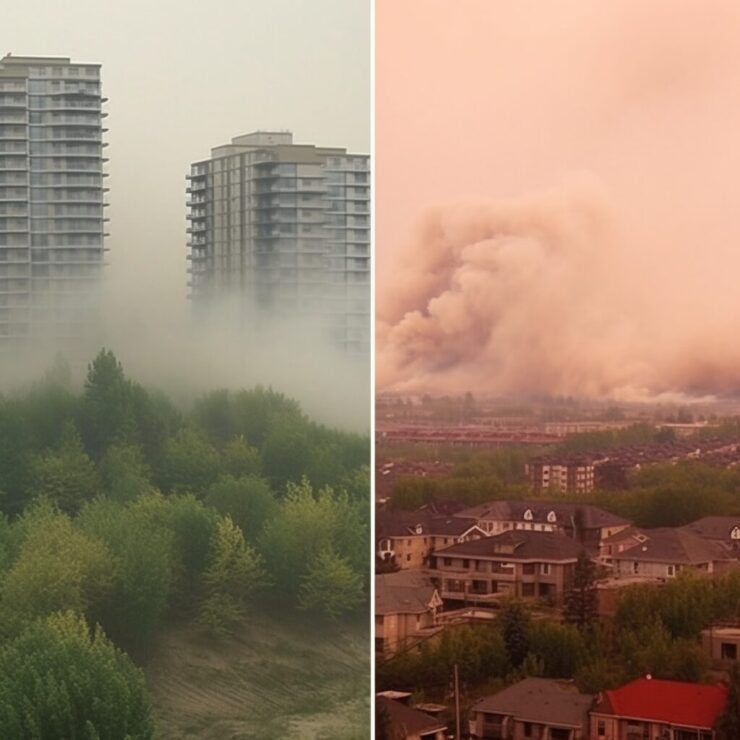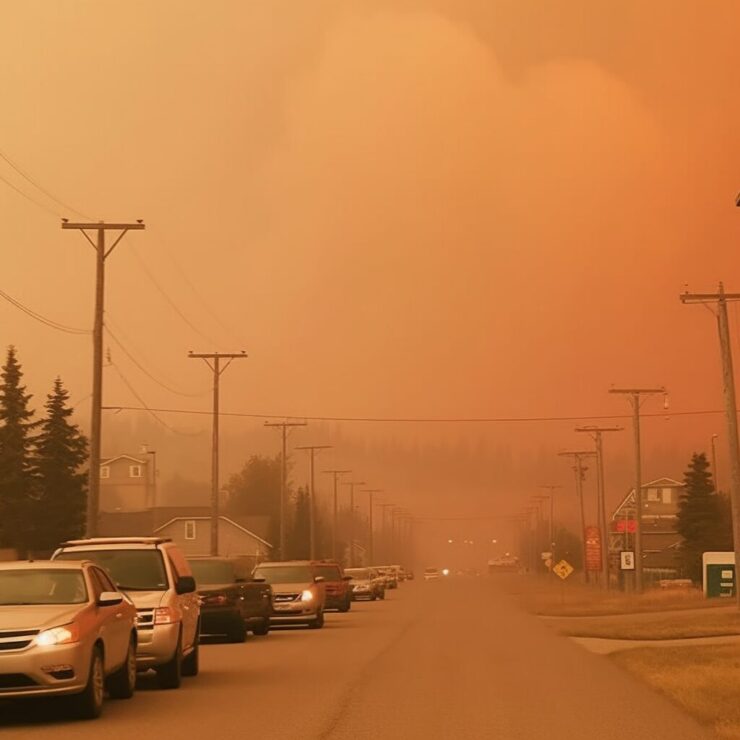As the international community continues to grapple with the escalating climate crisis, recent events have brought another dimension of this complex issue to the fore.
According to a report from ABC News, Canada has recently set a grim new record for annual wildfire smoke emissions, as recorded by the Copernicus Atmosphere Monitoring Service. This increase in emissions not only impacts Canada but also has significant cross-border implications, particularly for the Midwest region of the United States.
An air quality action day has been declared for today June 27th and Wednesday June 28th for all of northeast Illinois and northwest Indiana. Those with chronic respiratory issues should limit time outdoors. Visit https://t.co/BM1o3XYSBq for more information. #ILwx #INwx pic.twitter.com/fDzhfRnPqn
— NWS Chicago (@NWSChicago) June 27, 2024
Several U.S. states are experiencing the ramifications of this wildfire smoke, with the situation in Central Indiana and Illinois being particularly alarming. Fox 59 reports that smoky skies have returned to Central Indiana, mirroring an increase in poor air conditions that local residents have been grappling with.
It’s not just Indiana that is dealing with this sudden decline in air quality. WSAW has reported worsening air conditions in Wisconsin as well.
Experts attribute these deteriorating conditions to the relentless wildfires burning across Canada, which are subsequently increasing the concentration of smoke pollutants in the Midwest air.
The problem with wildfire smoke lies in its particulate matter, specifically PM2.5. NBC Chicago elaborates that PM2.5 refers to tiny particles or droplets in the air that are two and a half microns or less in width. These microscopic particles pose a serious health risk as they can be inhaled into the lungs and may even enter the bloodstream.
Extended exposure to high levels of PM2.5 can lead to a host of health issues, including respiratory and heart disease.
This situation has prompted serious concern for the overall air quality in the affected regions. A report from Yahoo News has underscored how the wildfire smoke from Canada is affecting the Midwest, with major urban areas such as Chicago, Wisconsin, and Grand Rapids experiencing compromised air quality.
Alarmingly, CBS News Chicago has reported that Chicago’s air quality is currently the worst in the world, surpassing heavily polluted cities like Beijing and Delhi. This development is a stark reminder of the interconnectedness of environmental crises, as a wildfire event in one country can cause significant health risks in another.
The escalation of these crises reveals a deeper narrative about the urgency and global nature of the environmental challenges we face. The ongoing climate crisis does not respect national borders – it is a global problem that requires global solutions.
As we witness the effects of Canadian wildfires on the Midwest’s air quality, it’s clear that cohesive and comprehensive international cooperation is needed to mitigate the impacts of climate change and protect the health of our planet’s population.

To navigate through these complex challenges, the world needs to adopt a multifaceted approach. This would involve global cooperation, the development and implementation of sustainable practices, and greater investment in technologies that mitigate the effects of climate change.
As we confront these severe environmental crises, it’s important to remember that every action counts, no matter how small, in the fight against climate change.













